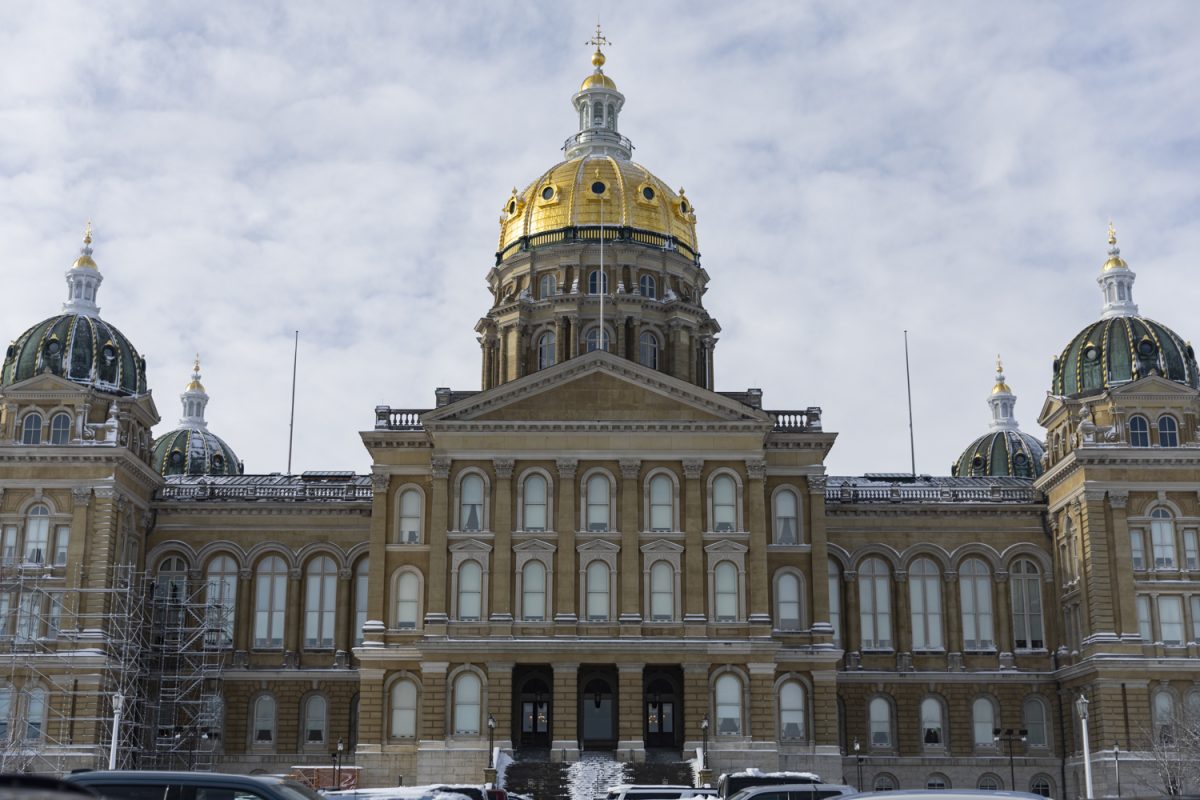People should not get a pass to discriminate in any and all cases under the guise of expressing religious beliefs.
Iowa Republicans in the Iowa Senate and House have decided to push for a religious freedom bill, Senate File 2095, which would further limit the cases where government could interfere in potential discrimination cases, requiring a “compelling government interest.”
In other words, this would give religious groups more protections in anti-discrimination suits and religious freedom suits.
Religious freedom is a fundamental value in Iowa and the U.S., but we must ensure that there is a balance between religious freedom and the freedom to not experience discrimination. This bill could open the door for discriminatory actions such as landlords kicking out their tenants or a boss discriminating against their employees.
This bill will only make it easier to legally discriminate under the guise of freedom of religion. Damien Thompson, of Iowa Safe Schools, expressed the same concern about the bill’s effects.
SF 2095 branched from the federal Religious Freedom Restoration Act, or RFRA, which gives people a bigger loophole in the law to freely use their religion as a reason for discrimination. While Tom Chapman from the Iowa Catholic Conference argues that the SF 2095 bill gives religious people a fair hearing in legal cases, in reality, it dampens protections for already marginalized groups of people.
The RFRA was passed in 1993 and ensures people can freely practice their religion without unnecessary interference from the government, unless there is a valid reason for such intervention. This act set the standard for how legal cases related to religious freedom should be handled but has been used as a reference to discriminate against others as well.
While the RFRA protects unlimited religious expression, it has been used to circumvent federal protections, such as permitting corporations from including contraception medications in their provided employee medical insurance plans, like in Burwell v. Hobby Lobby Stores. An additional state law such as SF 2095 only furthers the RFRA’s problematic legal applications.
Another example of a misuse of the RFRA happened in 2019, when the Trump Administration granted South Carolina’s request for an exception of a federal law meant to prevent discrimination in government-funded child welfare programs. The grant allowed a federally funded welfare agency to refuse adoption for parents who don’t share the same Christian beliefs as the agency, putting the children’s best interest on the back burner.
Even if there are legal forms of discrimination, it does not mean it is morally correct. Religion is not an objective moral code, as established by the First Amendment. If Iowa allows more leverage for religious freedom without equal protections for potential victims of discrimination in legal cases, then this bill will only do more harm than good.
The potential increased risks of discrimination are too great to go unnoticed by Iowa lawmakers since the government has not passed the federal “Do No Harm” Act, which would specify that the RFRA protects religious freedom but does not permit inflicting harm on others.
Freedom of religion is a necessary protection for everyone, especially minority religions, but Iowa lawmakers need to revise this loosely stitched bill to include protections for those who have been discriminated against under the name of religion. Without protections like “Do No Harm,” both the RFRA and the new Iowa SF 2095 bill act in part as tools for prejudice and discrimination.
Columns reflect the opinions of the authors and are not necessarily those of the Editorial Board, The Daily Iowan, or other organizations in which the author may be involved.













